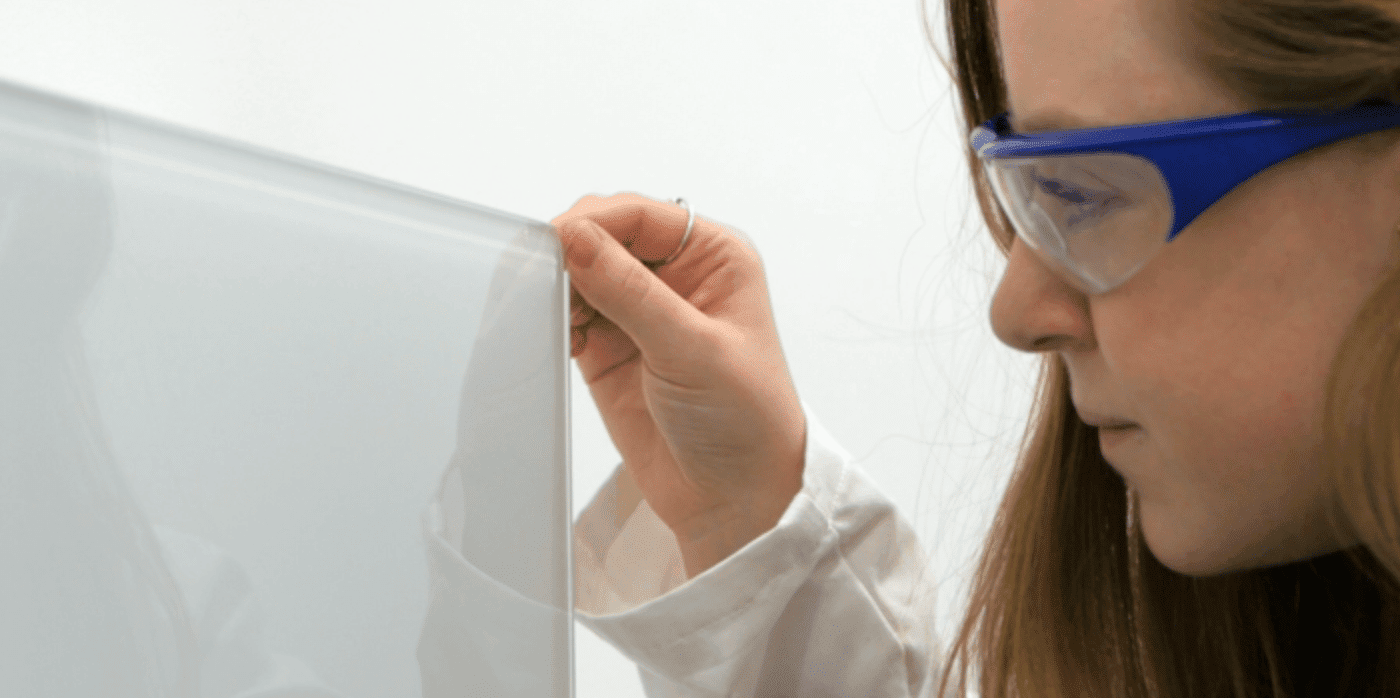
Spotted: Exacerbated by recent extreme weather temperatures and drought across the country, the UK’s production of greenhouse-grown vegetables decreased in 2022 for the seventh year in a row. At the same time, the need for increased irrigation plus rising costs of fuel, energy, and plant protection products means that traditional field agricultural methods remain stressed.
Innovators everywhere are struggling to reduce carbon emissions as quickly as possible. UK agtech company Albotherm’s founding team identified greenhouses and commercial high rises as two of the areas with the greatest opportunities for savings. Set up as a means of using science for good, the company created a reversible coating for glass that transitions between transparent in cool temperatures to opaque in heat.
Because the coating changes format depending on the temperature it has been programmed to respond to, there is little to no maintenance required after application, and it can be left on year-round with no risk of blocking essential sunlight in the winter months. The coating can be set to transition at any temperature between 18 and 45 degrees Celsius.
The traditional technique of painting greenhouses with opaque white, chalk-based paint in spring and then removing it in autumn is effective at blocking heat, yet it can also limit crop growth. In contrast, Albotherm’s technology increased crop yields by up to 34 per cent in trials. And with the closing of its £1.6 million (around €1.9 million) seed funding round, the company plans to scale up its manufacturing capabilities, complete large-scale commercial pilots in 2024, and prepare for a 2025 official product launch. Further development will focus on expanding the company’s product line for use on commercial buildings, where energy efficiency could save millions in heating, ventilation, and air conditioning (HVAC) costs.
Two other innovations spotted in Springwise’s archive that focus on reducing HVAC costs are net-zero glass and adjustable sunshades.
Written By: Keely Khoury

